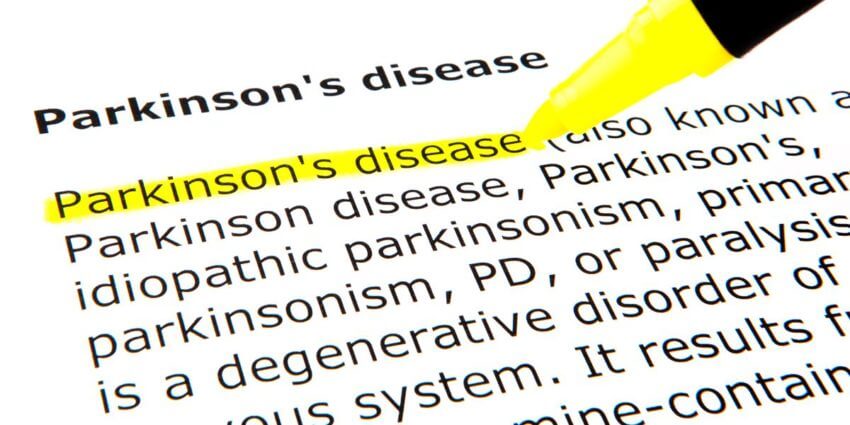Several studies over the past 3-4 years have strongly linked gut health to the risk of developing Parkinson’s Disease. The latest study from October 2018 shows that people who have had their appendix removed had a 20% lower risk of contracting Parkinson’s Disease. Other research clearly shows this risk comes from bacteria located throughout the colon!
The connection is between Parkinson’s and gut health is a toxic protein called called alpha synuclein (α-synuclein). This protein is found in the appendix of all people tested (in this study).
“Aberrant accumulation of α-synuclein in the GI tract occurs in response to toxins and bacteria that activate the immune system. This may signify that GI tract regions with regular interactions with environmental pathogens and enhanced immunosurveillance have a greater risk of developing α-synuclein abnormalities involved in PD. In agreement with this hypothesis, the appendix was recently shown to contain an abundance of α-synuclein” – Science Translational Medicine (31 Oct 2018)
What this study does not mention is that this same protein is also found in the human colon! The following study shows that α-synuclein deposits can be found in colon tissues of Parkinson’s disease patients and can predict disease onset.
“The presence of α-synuclein deposition within colon tissues in patients with Parkinson’s disease can aid in identifying early neuropathological changes prior to disease onset.” — PubMed ID#27803984 (2017)
Here researchers feed healthy aging rats Escherichia coli bacteria, e.Coli produces an amyloid protein that accelerated the deposits of α-synuclein in both the gut and the brain. This study bolsters the hypothesis that Parkinson’s disease can start in the gut, and that amyloidogenic proteins can start a process where one type of misfolded protein causes another to misfold.
“To evaluate the role of amyloid proteins made by the microbiota we exposed aged rats and transgenic C. elegans to E. coli producing the extracellular bacterial amyloid protein curli.” — PubMed ID#27708338 (2016)
The following study shows that intestinal permeability, caused by E.Coli bacteria, and Parkinson’s Disease (PD) are linked.
“intestinal hyperpermeability significantly correlated with increased intestinal mucosa staining for E. coli bacteria, nitrotyrosine, and alpha-synuclein as well as serum LBP levels in PD subjects. These data represent not only the first demonstration of abnormal intestinal permeability in PD subjects but also the first correlation of increased intestinal permeability in PD with intestinal alpha-synuclein (the hallmark of PD), as well as staining for gram negative bacteria and tissue oxidative stress.” — PubMed ID#22145021 (2011)
Parkinson’s Disease (PD) has been detected in the colons of mice prior to the onset of PD symptoms. Alpha-synuclein deposits expand in both the gut and the brain of PD mice, beginning with the gut.
“PD is a slow-progressive disease with colonic dysfunction appearing in the prodromal stage and lasting throughout the course of the disease… in the colon of the mice, phosphorylated α-syn was detected prior to the onset of motor behavioral deficits, indicating that the pathological alterations in the gut appear before the motor deficits even occur… Our model presents both the symptomatic and pathological features of early PD, expanding from the gut to the brain.” — Translational Neurodegeneration (2018)
The evidence linking bacteria in the gut (especially unwanted e.Coli strains) is very strong and getting stronger almost monthly. Escherichia coli causes intestinal permeability, it also leads to alpha-synuclein protein development. The intestinal permeability can allow alpha-synuclein proteins into the system environment (the blood stream). Several recent studies have now linked alpha-synuclein to Parkinson’s Disease development. Preventing, or treating, any dysbiosis of the gut is important. This will allow intestinal permeability to heal and help prevent additional alpha-synuclein development. Avoiding gluten / gliadin can also be beneficial as it has been linked to intestinal permeability (and “Tight Junction” dysfunction), especially in genetically susceptible people (not only those with celiac disease).
See The Gut Health Protocol (especially Chapter 12) for more information.
All images posted by John Herron are either "Copyrighted John Herron", or are copyrighted by someone else and are used under license. So please don’t use them elsewhere, you’ll get in trouble.


 Phage Complete comes with a full 30 day money back guarantee, for U.S. purchases this includes the original shipping charges to you!
Phage Complete comes with a full 30 day money back guarantee, for U.S. purchases this includes the original shipping charges to you!
How soon does order get processed and sent to US address?
Collen, orders normally ship out within 1-2 business days (normally 1). US shipments ship by USPS Priority Mail (1-3 day business day shipping).